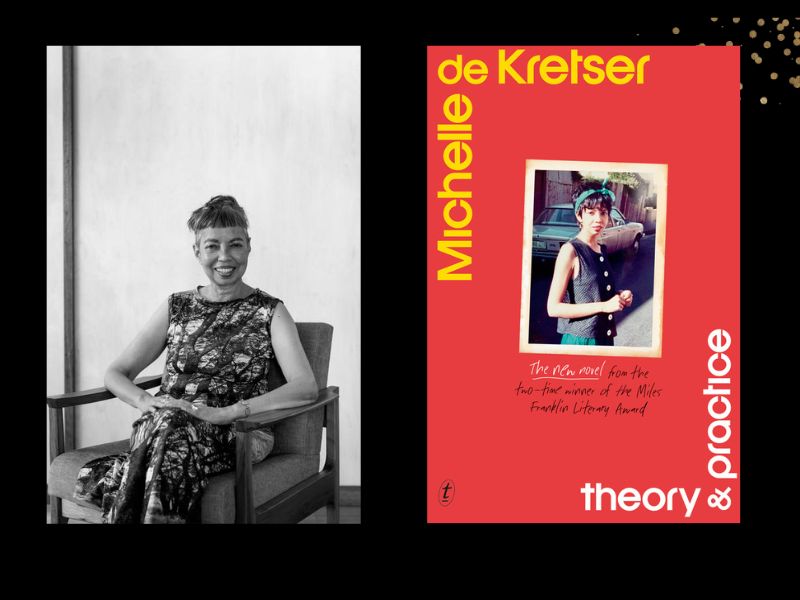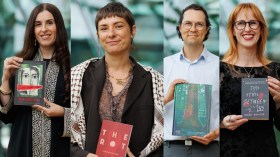For months now, I’ve been carrying Michelle de Kretser’s latest novel, Theory & Practice, pulling it out poolside or in cramped coffee shops. It’s the kind of book that slips unobtrusively into a tote bag, to be pulled out and savoured in contemplative bursts.
Fans of her longer works, such as The Life to Come or Questions of Travel, will find Theory & Practice both a departure and a continuation. Signature themes – identity, displacement, feminism and colonialism – are unmistakably de Kretser, but gone is the immersive sweep of narrative, replaced by something more fragmented, more agile.
This structure is not a bug; it’s the point. De Kretser dares readers to abandon coherence, to embrace life as an assemblage of drafts, false starts and unresolved tangents rather than a polished final submission. What follows is a hybrid text, an amalgam of fiction, essay and memoir that nods to the author Virginia Woolf’s attempts to fuse ‘fact’ and ‘vision’.
The novel opens with a deliberate feint: a conventional narrative abandoned almost as soon as it begins. The actual story unfolds in 1980s St Kilda, where a 24-year-old first-generation migrant from Sydney tackles a postgraduate on Woolf. Alongside her studies, she receives passive-aggressive messages from her mother and befriends Melbourne’s bourgeoisie, namely the couple Olivia and Kit. With Kit, she begins a ‘deconstructed’ relationship (an affair), while her dynamic with Olivia is defined by jealously and emotional distance.
De Kretser peppers the novel with Hélène Cixous’ écriture féminine and Woolf’s A Room of One’s Own, exposing the gap between the radical promise of theory and the messiness of human behaviour. This interplay – between what we believe and what we do, what we theorise and what we live – forms the thematic backbone of the book.
Her protagonist embodies these tensions: her feminist ideals constantly clash with the inconvenient realties of her relationships with symbolic maternal figures, while her academic pursuits echo Woolf’s own dichotomies – a public progressive, a private elitist. De Kretser also touches on the ubiquity of sexual assault, folding it into her broader critique of the overemphasis on theory in arts and literature at the expense of praxis (practice, as distinguished from theory). By the end, the concept of poiesis – the art of making – emerges not as a neat narrative conclusion, but as an urgent and inevitable truth about both art and life.
This exploration is sharp and unsentimental, with prose that is nimble and erudite, yet entirely unpretentious. Take, for example, the narrator’s ‘Woolfmother’ poster, Blu-Tacked to the wall behind her door and slowly peeling away, a quiet symbol of her wavering admiration for the author. A party scene transforms into a microcosm of power struggles and alienation, while descriptions of suburban landscapes unfold into reflections on belonging and loss. These meditations resist tidy resolutions, instead inviting readers to sit with the discomfort of ambiguity. The space between theory and practice is, after all, where life happens.
Read: The Name of this band is R.E.M, Peter Ames Carlin
Theory & Practice isn’t for everyone. It’s shambolic, pragmatic, a touch angsty and its fragmented structure, along with the absence of a conventional narrative arc, may frustrate some readers. But for those who appreciate the elasticity of form and the generative tension between what we profess to believe and how we actually behave, this is a book you’ll carry – with you and within you – for a long time.
Theory & Practice, Michelle de Kretser
Publisher: Text Publishing
ISBN: 9781923058149
Format: paperback
Pages: 192pp
Publication date: 29 October 2024
RRP: $32.99






